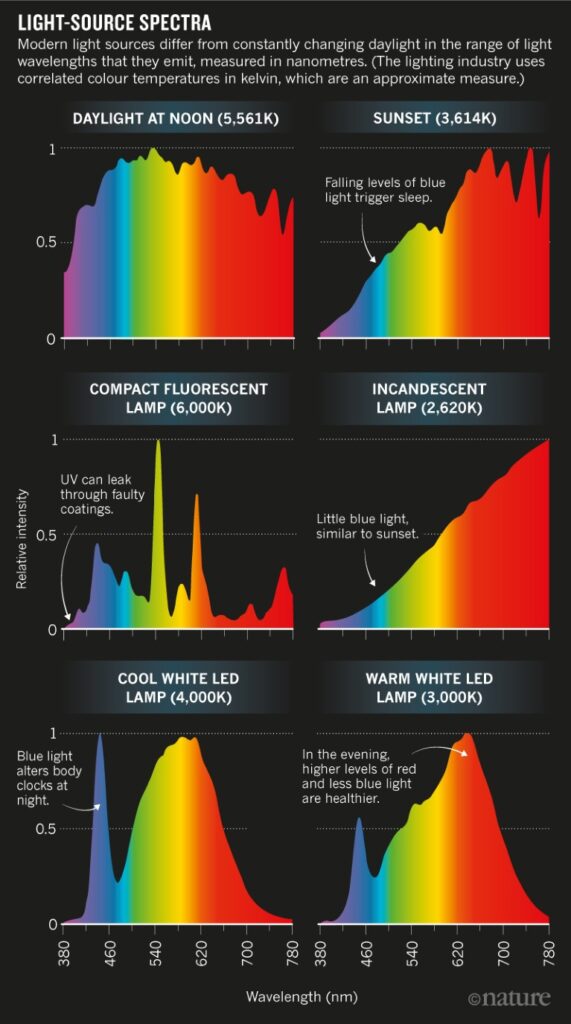An Open Letter to the Danish Government
Proposal for Structural Changes to the Healthcare and Child Welfare System
Regarding:
Minister of Health: Sophie Løhde
Minister for Children and Education: Mattias Tesfaye

Published November 13, 2024
We find ourselves at a time when our healthcare and child welfare system no longer keep up with the latest knowledge about human health and well-being.
I’m addressing you because this stagnation is going to have serious consequences for the next generation—consequences that are more fatal than we have yet realized.
If we, as a society, fail to take these challenges seriously, we risk leaving behind a generation of children and young people who either won’t be able to reproduce or suffer from such severe chronic illnesses that it undermines their ability to maintain the welfare state we all desire.
Therefore, I would like to highlight some of the most pressing issues that should be addressed promptly and without major complications:
- 1.1 Exposure to daylight: Increasing exposure to daylight to regulate circadian rhythms and support optimal biological functions.
- 1.2 Reduction of artificial blue light: Measures to minimize exposure to harmful blue light.
- 1.3 Ban on mobile phone use during school hours: To promote concentration, social skills, and mental health among students.
- 1.4 Removal of fluoride from drinking water sources: A call to remove fluoride from all public water supplies, restoring our fundamental right to choose.
- 1.5 Adjustment of school start times: Introduction of schedules that align with children’s natural biological rhythms (for the age group 6-21 years).
1.1 Exposure to Daylight
It is widely known that humans are governed by a so-called biological clock – a structure located in the middle of the brain. It is this “clock” that controls all the processes in the body: when we should be awake, when we should feel sleepy, when we should feel hungry, which hormones should be released, how our nervous system should be activated, and so on. It is very simple: If our biological clock is out of balance, our biological processes do not work with us but against us.1 2
A few factors help regulate the rhythm of this clock, and the most decisive one is sunlight (natural light). However, the fact that we spend an average of only one hour a day outdoors means that we never get the amount of light our biological clock requires to regulate and activate the right processes.
For reference, this clock requires the brain to receive around 10,000 lux (a unit of light measurement) regularly throughout the day to sufficiently regulate our biological rhythms3. While a clear day gives us 100,000+ lux and a cloudy day around 10,000, an overly lit indoor room gives a maximum of 300 lux. This means that we are never in an environment where our circadian rhythms are optimally regulated (why guidelines or education about the importance of this should be introduced).
In addition to the imbalance in the circadian rhythms of children and young people (including our own), which I personally believe has the most fatal consequences for their development, both physically and mentally, several studies4 also show a clear connection between the development of myopia and children who spend less than two hours a day outdoors.
1.2 Reduction of Artificial Blue Light
The phase-out of incandescent bulbs and the transition to energy-saving LED lighting have had significant consequences for all biological life on Earth. Humans are certainly not exempt. The problem with modern LED lighting is that the color spectrum of the sun is no longer simulated. We are now mainly exposed to harsh, artificial blue light.

Together with the light from screens (which is closely related), this creates a range of challenges, both hormonally, mentally, and in terms of learning.
Here’s an overview:
- Since the sun primarily emits blue light during midday, exposure to this form of light from the moment we wake up until we go to bed will disrupt our circadian rhythm and the biological clock we just mentioned.
- From a biological perspective, our brain releases dopamine when we are exposed to blue light (normally only from the sun)5. However, our brain cannot distinguish between sunlight and artificial light. This means we are placing our children in an environment where they are constantly releasing dopamine. For comparison, this kind of dopamine release is similar to what happens when using recreational drugs.
- Humans have never, until just a few years ago, been exclusively exposed to blue light. The sun emits the full color spectrum, whether it’s morning, noon, or sunset. With the transition to LEDs, we have found a way to avoid this, resulting in our cells (mitochondria) being in constant degradation6.
- Blue light is strongly associated with ADHD and concentration problems in children and young people7 8. The incidence of ADHD diagnoses has risen sharply over the past 30 years, closely following the curve of LED light introduction. Studies now suggest that the biological disruptions caused by our new light sources for all biological life could alleviate many learning difficulties if we switch back to a light source that (1) does not flicker and (2) emits a larger portion of the color spectrum to simulate the sun’s natural light as accurately as possible, such as the incandescent light we used to use.
1.3 Ban on Mobile Phones During School Hours
The use of mobile phones during school hours should serve one purpose: emergency contact with parents.
The obvious solution is to ban the use of mobile phones during lessons. There is not a single reason why mobile phones should have any function during this period.
If we are to raise children who can function socially, it requires us to prevent the absence of legislation from leading them to resort to their phones as soon as the bell rings for break time. This further makes it impossible for parents to regulate the use of mobile phones and social media when it is increasingly the norm, rather than the exception, for children as young as 6 years old to have their own mobile phone.
Recent literature shows that screens and social media reduce attention span and hinder the social skills of children and young people9 10 11.
Make it easier for parents to control when their children are allowed to have mobile phones, while also creating an environment at school that promotes learning and social skills by banning the use of mobile phones during school hours.
1.4 Removal of Fluoride from Drinking Water Sources
Since the end of World War II in 1945, we have globally mass-medicated the population by adding fluoride to drinking water in many countries around the world.
There are several fundamental issues associated with this. By determining what the population must consume, people are deprived of their basic right to make decisions about themselves and their own health. This is an example of medical tyranny.
Fluoride is linked to a multitude of potential side effects, including reduced IQ in children and young people, as well as other neurodevelopmental disorders such as Alzheimer’s, arthritis, and thyroid diseases12. Even if one chooses to believe the limited literature suggesting fluoride is essential for dental health, it still has no place in the human gastrointestinal system, where it ends up when ingested through tap water.
Fluoride consumption should be a personal choice and should only occur through the use of toothpaste. Restore our right to self-determination and remove fluoride from drinking water immediately, just as U.S. Health Secretary Robert F. Kennedy has recently initiated in the United States.
1.5 Adjustment of School Start Times
The human circadian rhythm stabilizes only when the brain and body are fully developed, around the age of 21.
Until then, young people should not be treated the same as adults. While the circadian rhythm of an adult typically results in the sleep hormone melatonin being released around 7 p.m., encouraging earlier bedtimes, it is released later in teenagers. In addition to the fact that teenagers’ sleep patterns are shifted compared to adults, they also require more sleep, which also applies to children and young people in the younger age groups (from 6 years and up). If they do not get the necessary rest, the consequences—unsurprisingly—are hindered development, both physically and mentally. With increasing educational demands, we currently have frameworks for our young people that are simply unrealistic.
When melatonin is released just two hours later in a teenager, it means their ideal bedtime is around 11:00 p.m., contrary to adults. Add to this that teenagers, on average, need an extra hour of sleep because they are in a steep developmental curve. In this case, their ideal wake-up time is typically around 8:00 a.m.
For reference, an increasing number of schools in the U.S. have begun to rebel against the model of early start times and have instead chosen to start the school day at times that are more in line with the biological circadian rhythm. One of the first test cases took place in Edina, Minnesota13. Here, school start times for teenagers were moved from 7:25 a.m. to 8:30 a.m. More remarkable than the additional 43 minutes of sleep these teenagers reported getting was the change in their academic performance, measured with a standardized test called the Scholastic Assessment Test, or SAT.
In the year before this time change, the average verbal SAT score for the highest-performing students was a very respectable 605. The following year, after the school start was moved to 8:30 a.m., this score increased to an average of 761 for the same top group of students. SAT scores in mathematics also improved, rising from an average of 683 the year before the time change to 739 the year after. Overall, this shows that an investment in later school start times—giving students more sleep and better alignment with their unchangeable biological rhythms—resulted in an overall SAT increase of 212 points.
Based on the latest data, it should be considered to adjust school and institution start times for children and young people, so that no form of education begins before 9:00 a.m.
I expect that the welfare state that Denmark claims to protect will take my requests seriously and look into implementing these measures as soon as possible, as they are obvious and can be implemented without significant challenges.
You are welcome to contact me if a further discussion or additional information is required.
Mads Tömörkènyi
Author and Researcher in Quantum Biology
[email protected]
https://www.instagram.com/mtperformancedk/
www.mtperformance.co
- https://pmc.ncbi.nlm.nih.gov/articles/PMC8892387/#:~:text=
Light%20exposure%20has%20a%20different,et%20al.%2C%202003) - https://pmc.ncbi.nlm.nih.gov/articles/PMC6751071/
- https://pubmed.ncbi.nlm.nih.gov/8596632/
- https://www.nature.com/articles/s41598-021-85825-y
- https://www.sciencedirect.com/science/article/pii/S0014483523002257
- https://www.sciencedirect.com/science/article/pii/S1011134423000088#
:~:text=Previous%20studies%20have%20demonstrated%20that,death%20%5B34%2C35%5D - https://www.semanticscholar.org/paper/Influence-of-Fluorescent-Lights-on
-Hyperactivity-Ott/842ac82eedbc000bdb3716fbc0e074c7c460116b - https://www.youtube.com/watch?v=0zXp_9w8UVU
- https://www.nature.com/articles/s41598-023-36256-4
- https://pmc.ncbi.nlm.nih.gov/articles/PMC7364393/
- https://pmc.ncbi.nlm.nih.gov/articles/PMC5403814/
- https://pmc.ncbi.nlm.nih.gov/articles/PMC3491930/
- http://www.perfectscorer.com/2021/07/improved-sleep-is-associated-with-212.html


















29 comentarios
Thank you Mads!!!! Will share with my entire network
Delt. Tak for dit evige engagement og bidrag
Shared! 🙂
Hope for change!
You should run for health secretary yourself. That’s the only way things can change
Fantastisk! De SKAL lytte!
Ja tak
Helt enig i dette skriv.
Jeg kunne ikke være mere enig. Sophie Løhde og Mattias Tesfaye, tag action og lad os få gjort noget ved disse problemer ASAP.
Let’s go! No more medial tyranny!
Ja tak
Helt enig i hvert et ord! 🙂
Everybody support this!
Support!
It is pretty obvious, well done!
Vi har alvorligt brug for det her, hvis ikke hjemmeskoling skal blive den eneste udvej. Tak, Mads!
Dit bidrag er enormt, Mads. Men jeg tvivler på, at dem der er på Christiansborg pt. er kompetente nok til denne udvikling
100% agree! Full support from Sweden!
Et rigtigt fint udsnit af nogle af de mange ændringer, som vi som samfund ville finde helt naturlige, hvis vi zoomede ud og opnåede de relativt simple erkendelser om, at vi ikke kan mekanisere og optimere mennesket via en tayloristisk tilgang. Tænk, hvis vi turde tænke holistisk og regenerativt i stedet for at handle på baggrund af en organisering af samfundet, som beror på gamle uddaterede principper fra rationalisme og Henry Fords tid – principper som vidt og bredt er anerkendt i forskningsverdenen som værende et fortidslevn , men som fortsat dominerer i praksis.
Så vigtigt det her!
Helt enig. Håber der bliver handlet på det!
Endelig en der siger det højt!
Hvordan vil du fjerne naturligt forekommende flour i grundvandet? Uden at proppe noget mere skadeligt i vandet?
Vi kan måske bore mere selektivt, men det betyder bare at der er en smule mindre naturlig flour.
Jeg har ikke set hørt om kunstigt tilsat flour i dansk drikkevand. Jeg var af den forståelse, at det ikke er tilladt??
Resten virker primært, som implementeringsudfordringer. Hvor det grundlæggende handler om, hvordan man vælger at investere. En sund befolkning giver en sund økonomi. Revolutioner har dog aldrig ført til det intenderede resultat politisk, så sådan tilpasninger kan tage mange år at gennemføre. Selv hvis viljen var der. Du kommer nok igennem mange af de her breve, men held og lykke.
Make Denmark healthy again!!!! Lets go
Nice to summon up these pointers as factors that change a lot for future generations
Great article, thanks!
Enig i forslagene. Mobiltelefoner har aldrig gjort noget godt i skolen. Lærerene kæmper om børnenes opmærksomhed med Snapchat eller Tiktok. Ville ønske der havde været denne regel da jeg selv gik i skole.
Fantastisk, Mads. Keep going!
Thank you from the bottom of my heart Mads. This will be shared, in my entire network. Let me know if I can help you further.